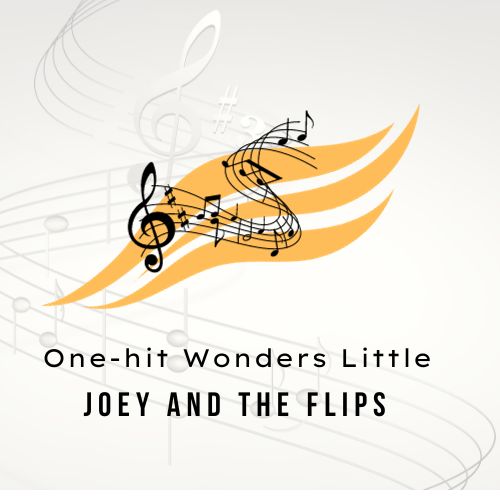What is a One-Hit Wonder?
Even though many musicians had Top 50 hits, MTV classics, or Rock Radio hits, the songs and their performers had to have reached the Top 40 lists with just one song. Anything less qualifies them as a One-Hit Wonder.
There are some arguments here, like in the case of UB40 and Chrissie Hynde’s “I Got You Babe,” where some claim that Chrissie Hynde is a One-Hit Wonder because her duet with UB40 is the only official Top 40 hit she has ever had (of course as a solo artist), even though that UB40 has had multiple hits.
In situations like those, when it would normally read UB40 & Chrissie Hynde, we’ve only listed Chrissie Hynde.
Kiki Dee is the same way. She was the band’s leader and had a hit with “I’ve Got The Music in Me,” but she then teamed up with Elton John to have a smash with “Don’t Go Breakin’ My Heart” in 1976. In the entry where “Don’t Go Breakin’ My Heart” is listed, we have just listed Kiki Dee (without Elton John), making this her second appearance as a One-Hit Wonder.
The Nitty Gritty Dirt Band is a fantastic illustration of what makes a One-hit Wonder. The Toot Uncommons, Steve Martin’s supporting band on “King Tut,” had enough successes to disqualify them from being considered a One-Hit Wonder. The Toot Uncommons and Steve Martin are both One-Hit Wonders, so to speak.
The song “Into the Night” by Benny Mardones is an example of another argument. He technically qualifies as a “One-Hit Wonder” because just one of his songs reached the Top 40 twice, in 1980 and 1989. The catalog number and single’s duration are the same for both recordings of “Into The Night,” which are identical recordings (and label). When Benny Mardones attempted to re-record the song in 1989, it was not successful.
Devo only had one big hit. “Whip It” is their sole Top 40 success. Arguments regarding them being a “One-Hit Wonder” frequently mention Devo.
It can be unexpected to see such well-known performers classified as One-Hit Wonder. Nonetheless, the following musicians are listed according to their official chart appearances.
Here are all the One-Hit Wonder musicians in chronological order of their peak date, along with the songs that helped make them famous.
Introduction to Little Joey and the Flips
Little Joey and the Flips were an interracial vocal group hailing from Philadelphia, fleetingly active during the early 60s music scene. They comprised of Joseph Hall in lead vocals, Fred Garace on first tenor, James Mehagher on second tenor, baritone John Smith and Jeff Leonard on bass vocals. One of the one-hit wonder acts, the Flips released a handful of records but the 1962 single “Bongo Stop” was the group’s only claim to fame.
Short career summary on Little Joey and the Flips
Hailing in Philadelphia, Pennsylvania, Little Joey and the Flips were an interracial vocal group formed in during the early 1960’s. They composed of Joey Hall on lead (b.1943), Fred Garace on first tenor (b.1947), James Meagher on second tenor (b.1946), John Smith (b. 1946) on baritone and Jeff Leonard (b. 1946) on bass. Garace, Meagher, Leonard and Smith were from Upper Darby, Philadelphia. While Hall, the only black in the group, was from West Philadelphia. They were initially formed as The Elads. When their manager replaced the original lead Jimmy Dilks with Joey Hall, The Elads were later changed to Little Joey and the Flips.
They re-recorded the demo “African Twist” as “Bongo Stomp” (influenced by The Dovells’ hit “Bristol Stomp”) with Jimmy Dilks on falsetto, but Swan, Chancellor, Newton, and Cameo-Parkway Records swiftly rejected this song.
Eddie Joy, the proprietor of Joy Records, received the demo from the managers. He thought the song was good and put “Lost Love” on the B side to release it as a single in 1962.
The following Joy Records single, “Bongo Gully”/”It Was Like Heaven,” came out in late 1962, the same week as the Dovells’ “Hully Gully Baby,” but with no promotion, the song didn’t do well on the charts.
The group parted ways with their managers and Joy Records, going to Cameo-Parkway Records instead, where they cut the sides “Fool Fool Fool” and “The Beachcomber” in 1964 as Joey & The Flips.
Now in 1965, Doo Wop bands were no longer popular, and Joey & The Flips played in TV studios for more than two years. Nevertheless, the group disbanded after Jeff Leonards was enlisted in the Vietnam War.
The Mistery Of The Night/Hot Rod, a single by Monogram Records featuring two 1962 unreleased sides of the group, was released in 1976.
Another recording by a group called The Flips from 1960, “Our Own Little World”/”My First Love Affair,” is also known to exist on Joy Records. “Bongo Stomp” is unquestionably not one of their recordings, given the record’s 1960 release date, which was two years earlier.
“Bongo Stomp” — Little Joey and the Flips’ lone hit
In 1962, Little Joey and the Flips achieved their only huge hit “Bongo Stomp.” It peaked at #33 on the Billboard pop chart. The 19-year old Hall sounded as though he was 13 years old. “Bongo Stomp” was followed by two more releases, “Bongo Gully” (1962) and “Fool, Fool, Fool” (1964) but these singles failed to repeat the success of their first single. Later on, the band split in 1967. In 1974, band leader Joey Hall died.
Little Joey and the Flips’ discography (list may be impartial)
Joy Records
(Jun 1962)
- A: Bongo Stomp
- B: Lost Love
(Aug 1962)
- A: Bongo Gully
- B: It Was Like Heaven
Goldisc Records
(1979)
Ronnie and The Hi-Lites
- A: I Wish That We Were Married
Little Joey and The Flips
- B: Bongo Stomp
Little Joey and The Flips
- A: Bongo Stomp
Robert and Johnny
- B: Million Dollar Bills
Collectables/ Back To back Hit Series
- A: Bongo Stomp
- B: Lost Love
Hockey Records
- A: Bongo Gully
- B: Lost Love
Conclusion
Little Joey and the Flips were a very short-lived band that had a modest but memorable hit with “Bongo Stomp,” and their history as one-hit wonders serves as a reminder of the unpredictability and constant change of the music industry.



